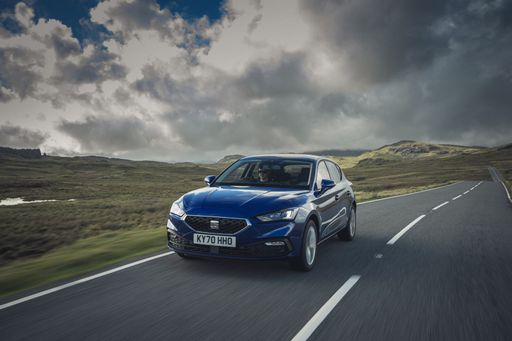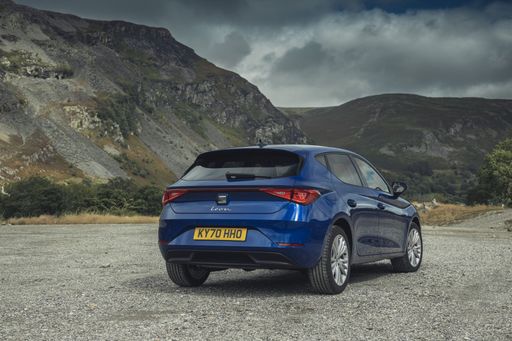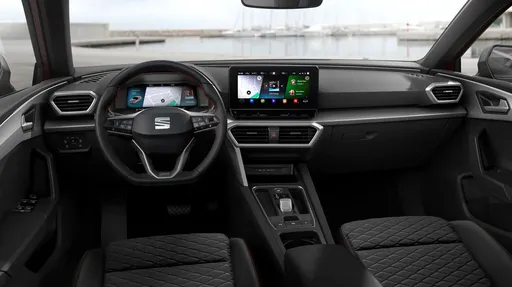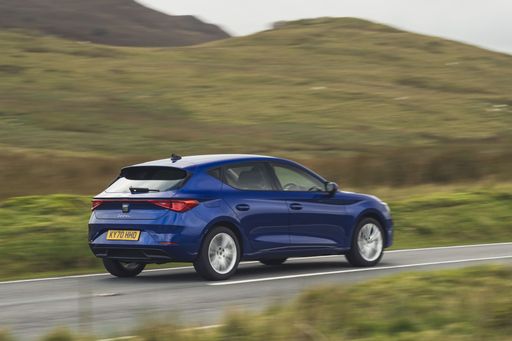SEAT Leon vs Toyota Yaris Cross - Differences and prices compared
Compare performance (272 HP vs 130 HP), boot space and price (24500 £ vs 23700 £) at a glance. Find out which car is the better choice for you – SEAT Leon or Toyota Yaris Cross?
Costs and Efficiency:
Price and efficiency are often the first things buyers look at. Here it becomes clear which model has the long-term edge – whether at the pump, the plug, or in purchase price.
Toyota Yaris Cross has a hardly perceptible advantage in terms of price – it starts at 23700 £, while the SEAT Leon costs 24500 £. That’s a price difference of around 763 £.
Fuel consumption also shows a difference: SEAT Leon manages with 1.20 L and is therefore decisively more efficient than the Toyota Yaris Cross with 4.50 L. The difference is about 3.30 L per 100 km.
Engine and Performance:
Power, torque and acceleration say a lot about how a car feels on the road. This is where you see which model delivers more driving dynamics.
When it comes to engine power, the SEAT Leon has a convincingly edge – offering 272 HP compared to 130 HP. That’s roughly 142 HP more horsepower.
In acceleration from 0 to 100 km/h, the SEAT Leon is clearly perceptible quicker – completing the sprint in 7.70 s, while the Toyota Yaris Cross takes 10.70 s. That’s about 3 s faster.
In terms of top speed, the SEAT Leon performs distinct better – reaching 220 km/h, while the Toyota Yaris Cross tops out at 170 km/h. The difference is around 50 km/h.
Space and Everyday Use:
Cabin size, boot volume and payload all play a role in everyday practicality. Here, comfort and flexibility make the difference.
Both vehicles offer seating for 5 people.
In curb weight, Toyota Yaris Cross is slightly lighter – 1180 kg compared to 1344 kg. The difference is around 164 kg.
In terms of boot space, the Toyota Yaris Cross offers barely noticeable more room – 397 L compared to 380 L. That’s a difference of about 17 L.
In maximum load capacity, the SEAT Leon performs to a small extent better – up to 1301 L, which is about 204 L more than the Toyota Yaris Cross.
When it comes to payload, SEAT Leon minimal takes the win – 521 kg compared to 510 kg. That’s a difference of about 11 kg.
Who comes out on top?
Overall, the SEAT Leon shows itself to be outperforms in nearly all aspects and secures the title of DriveDuel Champion.
It convinces with the more balanced overall package and proves to be the more versatile choice for everyday use.

SEAT Leon
Costs and Consumption
View detailed analysis
Engine and Performance
View detailed analysis
Dimensions and Body
View detailed analysis
SEAT Leon
SEAT Leon pairs sharp, modern styling with a cabin that's sensible and slightly sporty, making it an appealing choice for buyers who want flair without fuss. It drives with eager composure and offers a neat balance of comfort and agility, so you get everyday usability with a wink of fun.
details



Toyota Yaris Cross
The Toyota Yaris Cross takes the jaunty personality of the Yaris and gives it a taller stance and a bit more practicality, so you get city-friendly agility with added SUV presence. It’s easy to live with, economical on the daily grind, and smartly packaged — a sensible pick for buyers who want fuss-free transport with a touch of character.
details







|

|
|
|
|
Costs and Consumption |
|
|---|---|
|
Price
24500 - 36400 £
|
Price
23700 - 34300 £
|
|
Consumption L/100km
1.2 - 5.5 L
|
Consumption L/100km
4.5 - 4.8 L
|
|
Consumption kWh/100km
-
|
Consumption kWh/100km
-
|
|
Electric Range
133 km
|
Electric Range
-
|
|
Battery Capacity
19.70 kWh
|
Battery Capacity
-
|
|
co2
27 - 126 g/km
|
co2
101 - 108 g/km
|
|
Fuel tank capacity
40 - 45 L
|
Fuel tank capacity
36 L
|
Dimensions and Body |
|
|---|---|
|
Body Type
Hatchback
|
Body Type
SUV
|
|
Seats
5
|
Seats
5
|
|
Doors
5
|
Doors
5
|
|
Curb weight
1344 - 1657 kg
|
Curb weight
1180 - 1290 kg
|
|
Trunk capacity
270 - 380 L
|
Trunk capacity
320 - 397 L
|
|
Length
4368 mm
|
Length
4180 mm
|
|
Width
1799 mm
|
Width
1765 mm
|
|
Height
1442 - 1460 mm
|
Height
1595 mm
|
|
Max trunk capacity
1187 - 1301 L
|
Max trunk capacity
1097 L
|
|
Payload
473 - 521 kg
|
Payload
485 - 510 kg
|
Engine and Performance |
|
|---|---|
|
Engine Type
Petrol, Petrol MHEV, Diesel, Plugin Hybrid
|
Engine Type
Full Hybrid
|
|
Transmission
Manuel, Automatic
|
Transmission
Automatic
|
|
Transmission Detail
Manual Gearbox, Dual-Clutch Automatic
|
Transmission Detail
CVT
|
|
Drive Type
Front-Wheel Drive
|
Drive Type
Front-Wheel Drive, All-Wheel Drive
|
|
Power HP
116 - 272 HP
|
Power HP
116 - 130 HP
|
|
Acceleration 0-100km/h
7.7 - 10.5 s
|
Acceleration 0-100km/h
10.7 - 11.3 s
|
|
Max Speed
197 - 220 km/h
|
Max Speed
170 km/h
|
|
Torque
220 - 360 Nm
|
Torque
-
|
|
Number of Cylinders
4
|
Number of Cylinders
3
|
|
Power kW
85 - 200 kW
|
Power kW
85 - 96 kW
|
|
Engine capacity
1498 - 1968 cm3
|
Engine capacity
1490 cm3
|
General |
|
|---|---|
|
Model Year
2024 - 2025
|
Model Year
2024 - 2025
|
|
CO2 Efficiency Class
D, B
|
CO2 Efficiency Class
C
|
|
Brand
SEAT
|
Brand
Toyota
|
What drive types are available for the SEAT Leon?
The SEAT Leon is available as Front-Wheel Drive.
The prices and data displayed are estimates based on German list prices and may vary by country. This information is not legally binding.
